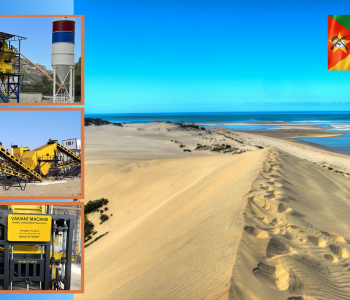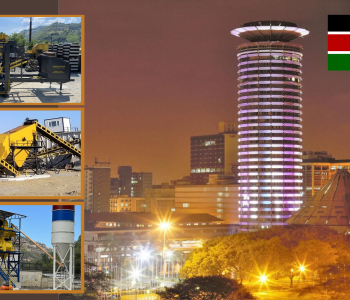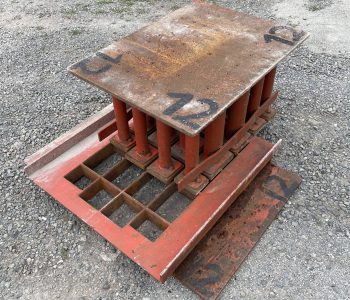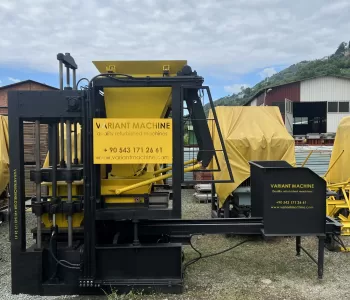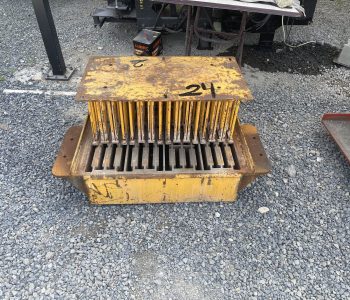Exploring the Benefits of Concrete Blocks: From Production to Application
Concrete blocks have become a staple in modern construction due to their versatility, durability, and cost-effectiveness. This article delves into the benefits of concrete blocks and the technology behind their production, including key components such as concrete block machines, vibration techniques, and various block types like hollow blocks, curbstones, and paving stones. Additionally, we’ll explore the roles of steel molds and different types of pallets in the production process.
The Concrete Block Production Process
The production of concrete blocks involves several sophisticated steps and technologies to ensure high quality and performance. Here’s a breakdown of the key elements involved:
- Concrete Block Machine
The concrete block machine is the heart of the production process. It automates the process of mixing, molding, and forming concrete blocks. Advanced machines are capable of producing a variety of block types, including hollow blocks, curbstones, and paving stones, with a high level of precision.
- Mixer
Before the blocks can be molded, the concrete mixture needs to be prepared. The mixer combines cement, aggregate (such as sand and gravel), and water in the right proportions to create a homogeneous mix. The quality of the mix is crucial for the strength and durability of the final product.
- Vibration
Vibration plays a critical role in the production of concrete blocks. During the molding process, vibration helps to remove air bubbles and ensures that the mixture settles properly into the mold. This step is essential for achieving uniform density and strength in the blocks.
- Hydraulic Press
After the concrete mixture is poured into molds, it is subjected to pressure from a hydraulic press. This press compresses the mixture to form solid blocks, ensuring they have the necessary strength and durability. The hydraulic press also allows for the production of various block shapes and sizes.
- Steel Molds
Steel molds are integral to the block production process. These molds shape the concrete mixture into the desired block forms and are known for their durability and precision. Steel molds can withstand the high pressure of the hydraulic press and the repeated use required in a high-volume production environment. Their robust construction ensures that the blocks produced have consistent dimensions and high quality.
- Pallets
Pallets support and transport the molded blocks during and after production, ensuring they are handled efficiently and remain in good condition as they cure. The types of pallets used in concrete block production include:
- Wooden Pallets
- Metal-Covered Pallets
- Plastic Pallets
- Metal Pallets
- Conveyor Belt
Once the blocks are molded and pressed, they are transported using a conveyor belt. This system efficiently moves the blocks through different stages of production, including curing and quality inspection.
- Automation Level
The level of automation in the production process can significantly impact efficiency and consistency. Modern concrete block production facilities often incorporate automated systems to streamline operations, reduce labor costs, and enhance overall product quality.
Types of Concrete Blocks and Their Benefits
Concrete blocks come in various forms, each serving a specific purpose in construction. Here’s a look at some of the most common types and their benefits:
- Hollow Blocks
Hollow blocks are popular due to their lightweight nature and excellent insulation properties. The hollow cores reduce the overall weight of the blocks, making them easier to handle and transport. Additionally, these blocks provide good thermal and acoustic insulation, making them ideal for residential and commercial buildings.
- Curbstones
Curbstones are used to define and separate roadways, sidewalks, and driveways. They are designed to withstand heavy traffic and environmental conditions. Curbstones are available in various sizes and shapes, providing flexibility in design and functionality.
- Paving Stones
Paving stones, also known as paving blocks, are used for creating durable and aesthetically pleasing outdoor surfaces such as driveways, walkways, and patios. They come in various colors, shapes, and textures, allowing for a wide range of design possibilities.
- Hollow Floor Blocks
Hollow floor blocks are designed for use in flooring systems, providing a lightweight and effective solution for building floors. These blocks offer good load-bearing capacity and contribute to the overall stability of the structure.
Advantages of Using Concrete Blocks
- Durability: Concrete blocks are highly durable and resistant to weathering, fire, and pests. This makes them a long-lasting choice for construction.
- Cost-Effectiveness: The use of concrete blocks can reduce overall construction costs due to their affordability and the efficiency of the production process.
- Versatility: With various types of concrete blocks available, they can be used in a wide range of applications, from structural walls to decorative features.
- Low Maintenance: Concrete blocks require minimal maintenance compared to other building materials, saving time and money over the lifespan of the structure.
- Environmental Benefits: Concrete blocks are often made from locally sourced materials, reducing transportation costs and environmental impact. Additionally, their thermal mass can contribute to energy savings in buildings.
Conclusion
Concrete blocks have established themselves as a vital component in modern construction due to their numerous benefits and the advanced technology used in their production. From the precise work of the concrete block machine to the essential roles of steel molds and various types of pallets, each element of the production process contributes to the overall effectiveness of concrete blocks in a wide range of applications. Their durability, cost-effectiveness, and versatility make them an excellent choice for building projects, both residential and commercial.
